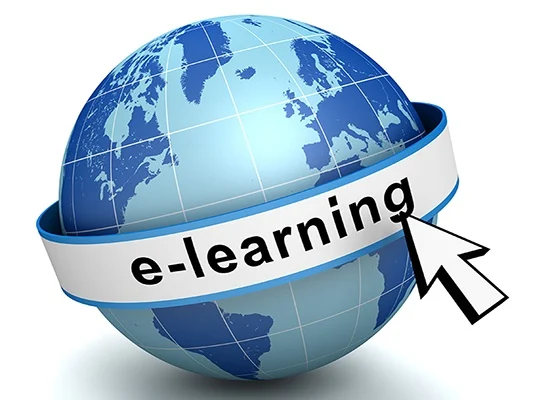Embracing the Future
Mon, 11 Dec 2023

Follow the stories of academics and their research expeditions

Introduction:
In recent years, the landscape of education has undergone a profound transformation, with eLearning emerging as a revolutionary force. As technology continues to advance at an unprecedented pace, the traditional classroom model is giving way to a more flexible, accessible, and interactive form of learning. In this blog post, we will explore why eLearning is not just a trend but indeed the future of education.
One of the most compelling reasons why eLearning is the future lies in its unparalleled accessibility. With the rise of the internet, learners from across the globe can now access high-quality educational resources with just a few clicks. This democratization of education breaks down geographical barriers, making learning opportunities available to anyone with an internet connection. Whether you're a student in a rural area or a working professional seeking to enhance your skills, eLearning provides an inclusive platform for knowledge acquisition.
Traditional classroom settings often struggle to accommodate the diverse needs and schedules of learners. E-learning, on the other hand, offers a level of flexibility that is unprecedented. Learners can access course materials at their own pace, allowing them to balance their education with work, family, and other commitments. This flexibility not only caters to the individual needs of students but also fosters a culture of lifelong learning, where individuals can continually update their skills in response to the dynamic demands of the job market.
One size does not fit all in education, and eLearning recognizes this fact. Through adaptive learning technologies and personalized content, eLearning platforms can cater to the unique learning styles and preferences of individual students. This personalized approach ensures that learners receive targeted content, allowing them to grasp concepts more effectively and progress at their own pace. The ability to tailor educational experiences to individual needs is a powerful aspect of eLearning that enhances the overall quality of education.
Traditional education often comes with a hefty price tag, encompassing expenses such as tuition, accommodation, and commuting. eLearning significantly reduces these costs by eliminating the need for physical infrastructure and associated overheads. Learners can access courses at a fraction of the cost, making quality education more affordable and accessible to a broader demographic. This cost-effectiveness not only benefits individual learners but also enables institutions to reach a larger audience.
Advancements in technology have given rise to immersive learning experiences through virtual and augmented reality, gamified content, and interactive simulations. These technologies not only make learning more engaging but also provide practical, real-world applications of theoretical concepts. The integration of cutting-edge technologies in eLearning enhances the overall educational experience, preparing learners for the challenges of the modern workforce.
Conclusion:
As we navigate the complexities of the 21st century, eLearning stands as a beacon of innovation, offering a transformative vision for the future of education. Its accessibility, flexibility, personalized learning, cost-effectiveness, and incorporation of advanced technologies position eLearning as a driving force in shaping the educational landscape. By embracing this evolution, we empower learners to chart their own educational journey, unlocking the doors to knowledge and skill development in ways that were once unimaginable. The future of education is here, and it's digital, dynamic, and boundless.
Leave a comment